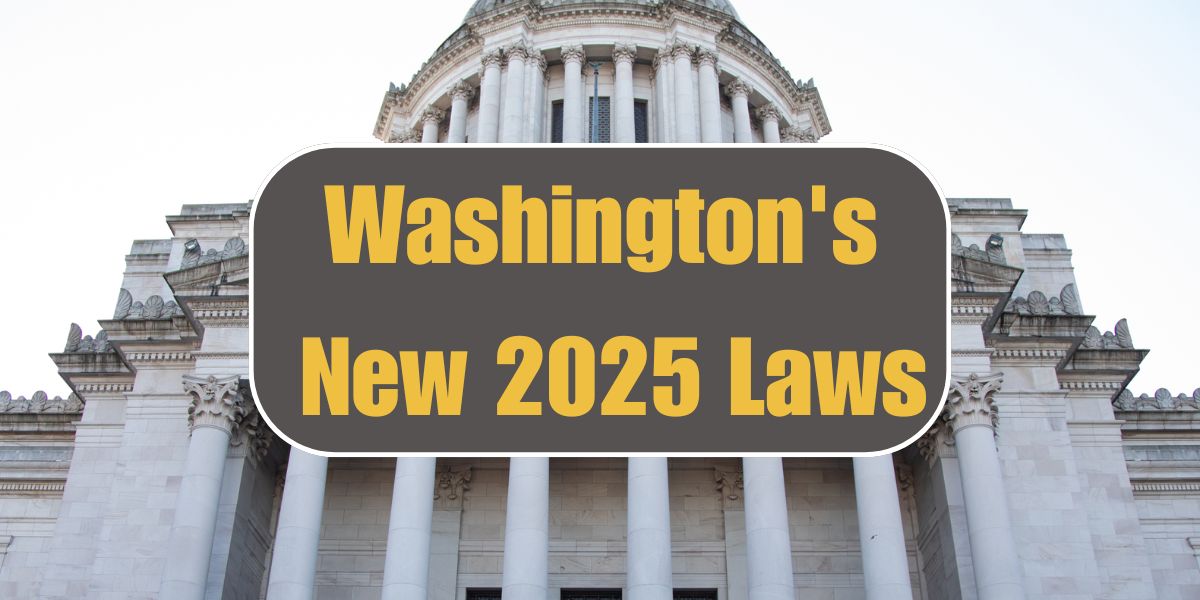Residents of Washington State should be aware of a number of recently enacted laws, as they affect many facets of daily life, such as the sale of specific consumer goods, driving penalties, and labor protections. These regulations seek to uphold moral principles, equity, and safety throughout the state.
The minimum wage is one of the major adjustments. The state minimum wage in Washington has been raised from $16.28 per hour to $16.66 per hour as of January 1, 2025, according to the Washington State Legislature.
It should be noted that Washington communities still have the power to raise the minimum wage if they so desire. The goal of this reform is to give workers more financial security while assisting them in keeping up with the growing expense of living.
Regulations pertaining to sick leave have also been updated. Employees now have more rights when it comes to using paid sick leave under the new laws.
In addition to using this leave for their own medical needs, they can also use it to care for their child’s spouse, any other people living with them, and during times when schools are closed because of emergencies declared by the government.
These adjustments are intended to give workers more flexibility and assistance in handling unforeseen circumstances and family obligations.
To combat reckless driving, especially when it puts vulnerable road users in danger, a crucial new regulation has been implemented. Specifically, the new charge—first-degree reckless driving with a vulnerable user victim—applies to reckless driving instances in which a pedestrian or cyclist is killed.

The punishments for this infraction are harsh and include a 90-day driver’s license suspension, a $1,000–$5,000 monetary fine, and up to 364 days in jail. In the end, this rule prioritizes the safety of those who are most vulnerable by attempting to improve responsibility and discourage careless driving.
Tennessee’s New 2025 Laws: Mandates Age Checks on Social Media and Certain Websites
Furthermore, it is now illegal to sell cosmetics that have been tested on animals. In keeping with the increased emphasis on moral consumer behavior and the humane treatment of animals, this rule forbids the sale of cosmetics that have undergone animal testing.
This prohibition does have some exceptions, though. Products that contain substances that were tested on animals for purposes unrelated to cosmetics and cosmetics that were tested in other nations where such testing is necessary to comply with their legislation are examples of these exceptions.
These clauses preserve the general objective of minimizing animal testing while allowing for some flexibility.
Last but not least, a new law has created a statewide hotline for reporting instances of bias and hate crimes. Even if this hotline is now legally permitted, it won’t start up right now. The job of gradually putting this system into place has been assigned to the Attorney General’s office.
Get Prepared: North Carolina’s New Laws Taking Effect in January 2025
The statewide deployment is planned on January 1, 2027, with a test program starting in three counties by July 1, 2025. In an effort to confront and prevent hate crimes, this project seeks to give locals a convenient way to report situations that are driven by bigotry or hatred.
Washington State’s dedication to building a society that is safer, more just, and morally upright is reflected in these legislative reforms.
These new laws demonstrate the state’s commitment to improve the well-being of its citizens by promoting ethical consumer practices, strengthening road safety, and assisting workers and families.

